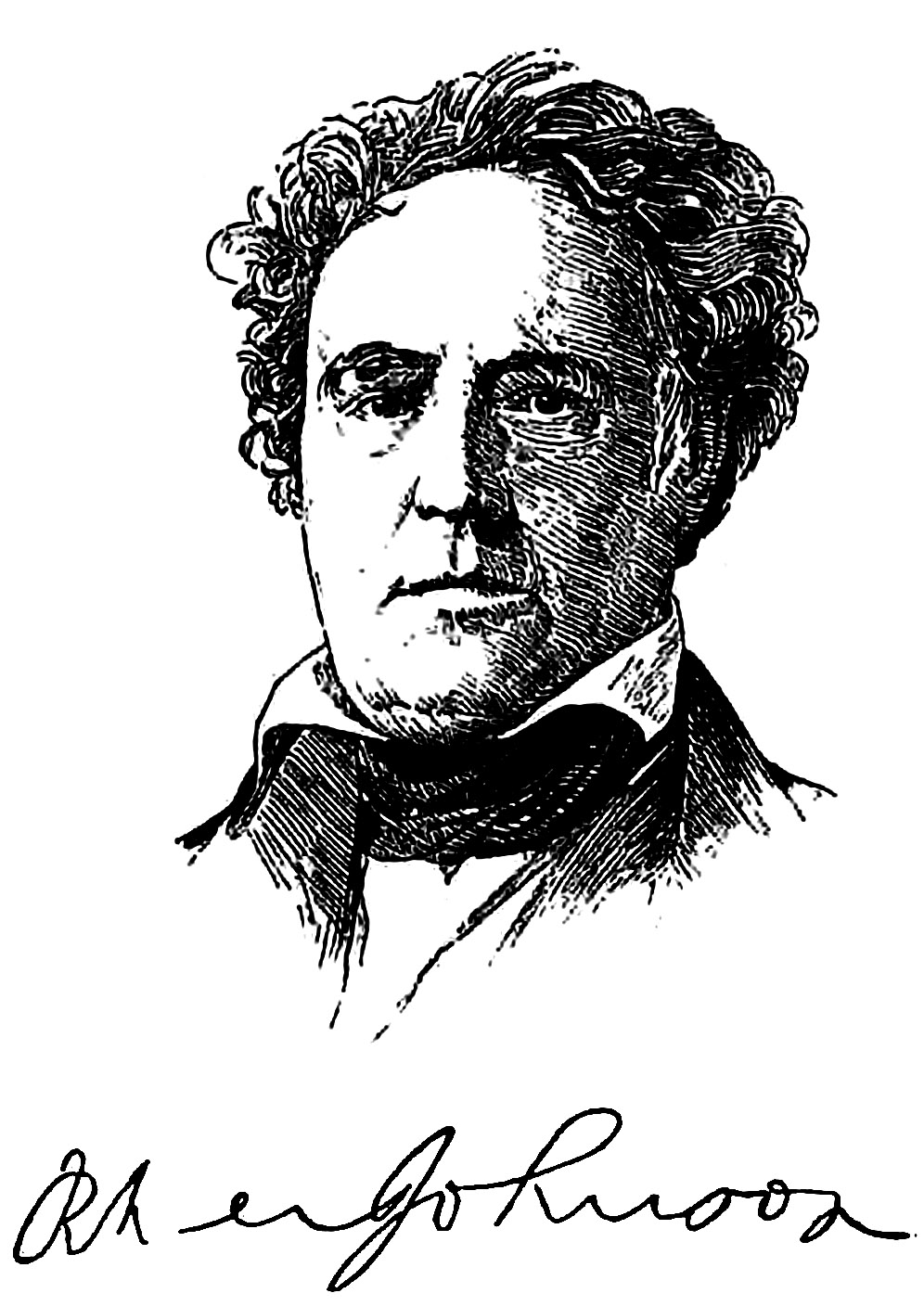Richard Mentor Johnson

JOHNSON, Richard Mentor, vice-president of the United States, b. in Bryant's Station, Ky., 17 Oct., 1781; d. in Frankfort, Ky., 19 Nov., 1850, was educated, at Transylvania university, studied law, was admitted to the bar, and practiced at Great Crossings, Ky. He was elected to the state legislature in 1804, and in 1807 was sent to congress as a Republican, Being several times re-elected, he served, with the exception of a few months, from 26 Oct., 1807, till 8 March, 1819. In June, 1812, he voted in favor of a declaration of war with Great Britain, and immediately after the adjournment of congress hastened home, where he raised a battalion of three companies, and after its consolidation with another he was placed in command of the regiment thus formed. After ten months of active service he returned to Washington, resuming his seat in congress, and materially aiding the president in preparing the plan of campaign for the following summer. Being authorized by the secretary of war to raise a regiment of one thousand mounted volunteers, he went to Kentucky at the end of the session in March, and soon raised the required number of men. Making his brother James lieutenant-colonel, he repaired to the Ohio frontier. He took part in the engagement at Chatham, Ontario, 4 Oct., 1813, and in the battle of the Thames on the day following. (See Harrison, WILLIAM Henry.) Col. Johnson with half his men attacked the Indians, while his brother James, with the remainder, fell upon the British regulars. During the combat Col. Johnson killed an Indian chief, whom he supposed to be Tecumseh (q.v.). The colonel was borne from the field almost life-less, having received several bullet wounds. Although not sufficiently recovered to be taken home until November, he was again in Washington in February, though still unable to walk, and resumed his seat. On his way to the capital he was heartily cheered, and congress, by joint resolution, directed that he should be presented with a suitable testimonial for his services. At the conclusion of his term in congress in 1819, he returned home, was chosen to the legislature, and at once elected to the U.S. senate, in place of John J. Crittenden, resigned. Being re-elected, he served until 3 March, 1829. He was then again chosen to the 2Ist, 22d, 23d, and 24th congresses, being a member of the house from 7 Dec., 1829, till 3 March, 1887. He was a candidate for vice-president of the United States on the ticket with Martin Van Buren, and, no choice having been made by the electoral college, he was chosen by the senate. At the close of his official term he retired to his home, having given thirty years of his life continuously to the service of his country. He was afterward sent again to the legislature, and was a member of that body at the time of his death. In 1814 he was appointed Indian commissioner. He was the author of the law abolishing imprisonment for debt in Kentucky, and while in congress made himself the especial friend of the old soldiers of the Revolution and the invalids of the war of 1812 by his efforts to secure pensions for them.